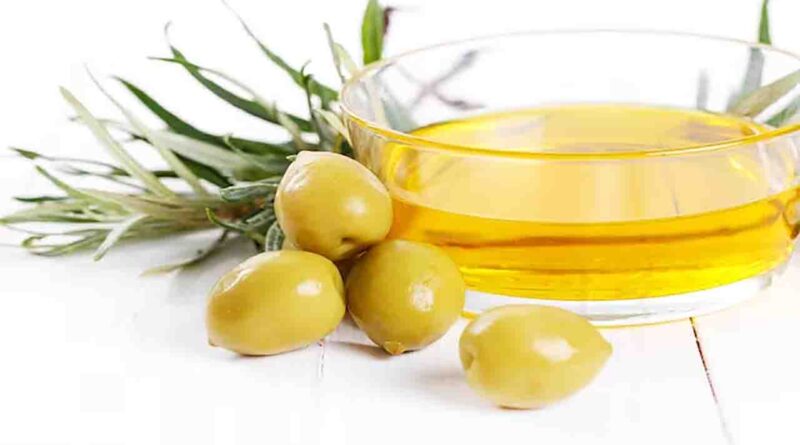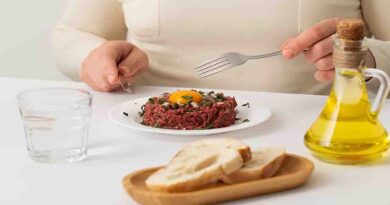Olive Oil During Pregnancy
Pregnancy is a time of immense joy and anticipation, but it also comes with a host of questions and concerns about what is safe and beneficial for both the expectant mother and the growing baby. One question that often arises is whether it’s safe to consume or use olive oil during pregnancy. In this comprehensive guide, we will delve into the world of olive oil and its potential benefits, safety considerations, and practical uses for expectant mothers. So, let’s explore the ins and outs of using olive oil during pregnancy.
Olive Oil – A Nutrient-Packed Elixir
Before we delve into its specific applications during pregnancy, it’s crucial to grasp the nutritional richness that olive oil brings to the table. Olive oil is much more than just a cooking ingredient; it’s a nutrient-packed elixir that offers a wide array of health benefits for both expectant mothers and their developing babies.
The Nutritional Profile of Olive Oil
Let’s take a closer look at the nutritional components that make olive oil stand out as a dietary superstar.
Breaking Down the Fats: Unsaturated vs. Saturated
One of the key features that sets olive oil apart is its fat composition. Unlike some other cooking oils, olive oil is predominantly composed of monounsaturated fats. These are considered heart-healthy fats and have been associated with several health benefits, including:
- Cardiovascular health: Monounsaturated fats can help lower “bad” LDL cholesterol levels and reduce the risk of heart disease, which is a significant concern for pregnant women.
Additionally, olive oil contains a small amount of saturated fat, but this is significantly outweighed by its monounsaturated fat content. Saturated fats, when consumed in excess, can contribute to heart disease, making the low saturated fat content of olive oil a favorable choice.
Rich in Antioxidants: The Role of Vitamin E
Vitamin E is a potent antioxidant that plays a crucial role in protecting cells from oxidative damage caused by free radicals. Olive oil, especially extra virgin olive oil, is a rich source of this essential vitamin. Here’s how vitamin E benefits pregnant women:
- Immune support: A robust immune system is essential during pregnancy to protect both the mother and the developing fetus from infections. Vitamin E helps bolster the immune system’s defenses.
- Skin health: Vitamin E contributes to maintaining healthy skin, which can be particularly beneficial as the skin undergoes changes during pregnancy, potentially reducing the risk of stretch marks and dry skin.
- Cellular protection: Vitamin E’s antioxidant properties help shield cells from oxidative stress, which is important for the overall well-being of both the expectant mother and the baby.
Omega-3 Fatty Acids in Olive Oil: A Boon for Brain Development
Omega-3 fatty acids, notably docosahexaenoic acid (DHA), are vital for the development of the baby’s brain and eyes during pregnancy. While olive oil is not a primary source of omega-3s, it does contain a small amount of alpha-linolenic acid (ALA), a plant-based omega-3 fatty acid. Here’s how it contributes:
- Building blocks for brain development: ALA can be converted to DHA in the body, which is crucial for the development of the baby’s nervous system, brain, and vision.
- Inflammation control: Omega-3s, including ALA, have anti-inflammatory properties, which can help alleviate inflammation-related discomforts that some pregnant women experience.
While olive oil provides some ALA, it’s essential for pregnant women to include other sources of DHA and EPA (eicosapentaenoic acid) in their diets, such as fatty fish or DHA supplements, to ensure optimal brain development in their babies.
In summary, olive oil boasts an impressive nutritional profile characterized by heart-healthy monounsaturated fats, a rich source of antioxidant vitamin E, and a small but valuable contribution of omega-3 fatty acids. These nutritional attributes make it a valuable addition to the diet of expectant mothers, offering potential benefits for both maternal and fetal health. However, it’s essential to use olive oil in moderation and as part of a well-balanced diet to reap its full rewards during pregnancy.
Health Benefits of Olive Oil
Now that we’ve explored the nutritional profile of olive oil, let’s delve into the specific health benefits it offers, especially during pregnancy.
Cardiovascular Health
One of the standout advantages of incorporating olive oil into your pregnancy diet is its positive impact on cardiovascular health. Here’s how it benefits both you and your developing baby:
- Lowering Bad Cholesterol: Olive oil is rich in monounsaturated fats, which have been shown to lower levels of LDL cholesterol, commonly referred to as “bad” cholesterol. High LDL cholesterol is a risk factor for heart disease, and managing cholesterol levels is crucial during pregnancy to reduce cardiovascular risks.
- Blood Pressure Regulation: Olive oil contains compounds that may help dilate blood vessels, potentially leading to lower blood pressure. Maintaining healthy blood pressure levels is essential during pregnancy to prevent complications such as preeclampsia.
- Antioxidant Protection: The high concentration of vitamin E and other antioxidants in olive oil can help protect blood vessels from oxidative damage, contributing to overall cardiovascular health.
Anti-Inflammatory Properties
Pregnancy often comes with various discomforts, including inflammation-related issues such as joint pain and swelling. Olive oil’s anti-inflammatory properties can be a boon for expectant mothers:
- Reducing Inflammation: Some components in olive oil, like oleocanthal, exhibit anti-inflammatory effects similar to non-steroidal anti-inflammatory drugs (NSAIDs), but without the potential side effects. This can provide relief from pregnancy-related inflammation and discomfort.
- Joint Health: Olive oil’s anti-inflammatory properties may alleviate joint pain and discomfort, which are common complaints during pregnancy, especially in the later stages.
Potential Weight Management
Weight management is a concern for many pregnant women. While it’s not advisable to actively try to lose weight during pregnancy, maintaining a healthy weight gain is essential. Olive oil can assist in this regard:
-
- Healthy Fat Source: Olive oil provides a source of healthy monounsaturated fats, which can help you feel more satisfied after meals, potentially reducing the tendency to overeat or snack excessively.
- Balanced Weight Gain: Incorporating olive oil into a balanced pregnancy diet can help you achieve a steady and appropriate rate of weight gain, which is vital for both maternal and fetal health.
- Blood Sugar Control: Olive oil’s monounsaturated fats may help regulate blood sugar levels, reducing the risk of gestational diabetes and excessive weight gain during pregnancy.
Is Olive Oil Safe During Pregnancy?
During pregnancy, safety is a primary concern, and it’s important to consider the potential risks associated with various foods and ingredients. Olive oil is generally considered safe during pregnancy, but there are some factors to keep in mind to ensure its safe consumption.
Potential Risks
a. Allergies and Sensitivities: Some individuals may have allergies or sensitivities to olive oil. If you have a known allergy to olives or olive products, it’s advisable to avoid olive oil during pregnancy to prevent any adverse reactions.
b. Purity and Quality Concerns: It’s essential to choose high-quality, pure olive oil when using it during pregnancy. Some lower-quality oils may be adulterated with other oils or substances. Look for reputable brands and check for certifications that indicate quality and purity.
c. Digestive Issues: Olive oil is generally well-tolerated by most people, but some individuals may experience digestive discomfort when consuming it in large quantities. Pregnant women should use olive oil in moderation to avoid any potential digestive issues.
Recommended Intake
a. Daily Consumption Guidelines: The American Pregnancy Association recommends that pregnant women consume about 2-3 tablespoons of healthy oils daily as part of their diet. Olive oil can be one of these healthy oil choices, but it’s important not to exceed the recommended amount as excessive fat consumption can lead to weight gain.
b. Cooking with Olive Oil: Olive oil is a versatile cooking oil and can be used in various dishes during pregnancy. It can be used for sautéing, roasting, and drizzling over salads. Cooking with olive oil can help you meet your daily healthy fat intake.
c. Using Olive Oil for Skincare During Pregnancy: Olive oil is also used for skincare due to its moisturizing properties. Some pregnant women use it to prevent stretch marks and dry skin. If you choose to use olive oil for skincare during pregnancy, ensure that it is pure and does not contain any added fragrances or chemicals that could be harmful to your skin or the baby.
Nurturing Your Pregnancy with Olive Oil
Olive oil can be a valuable addition to your pregnancy journey, offering a range of potential benefits for both you and your developing baby. By understanding its nutritional value, practicing safe usage, and exploring its versatile applications, you can harness the power of this liquid gold during this precious time in your life.
Remember, always consult with your healthcare provider or a qualified nutritionist before making significant dietary or lifestyle changes during pregnancy. They can provide personalized guidance based on your unique needs and circumstances.
As you embark on this beautiful journey, may the goodness of olive oil contribute to a healthier and more enjoyable pregnancy experience.
Frequently Asked Questions (FAQs)
This section addresses common queries and concerns regarding olive oil and pregnancy.
1. Can I use olive oil as a cooking oil during pregnancy?
Yes, you can use olive oil as a cooking oil during pregnancy. It’s a safe and healthy choice when used in moderation.
2. Is it safe to consume raw olive oil while pregnant?
Yes, it is generally safe to consume raw olive oil during pregnancy. However, ensure it’s high-quality and free from additives.
3. Can olive oil help with morning sickness?
Olive oil is not typically used to alleviate morning sickness. Ginger and other remedies may be more effective.
4. Are there any side effects of using olive oil during pregnancy?
Side effects are rare but can include digestive discomfort in some individuals. Use it in moderation.
5. What are the alternatives if I’m allergic to olive oil?
If you’re allergic to olive oil, consider alternatives like avocado oil, coconut oil, or sunflower oil for cooking. Always check for allergies with your healthcare provider.




